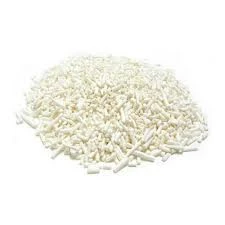
Exploring the Benefits and Uses of E200 Preservative in Food Products and Safety
The Role of E200 Preservative in Food Safety
In today's fast-paced world, ensuring food safety and longevity has become increasingly important. Among various food preservatives used across the globe, E200, commonly known as Sorbic Acid, plays a significant role. This article aims to provide an insight into E200, its applications, benefits, and safety concerns in the food industry.
What is E200?
E200 is the European food additive classification for Sorbic Acid, a naturally occurring compound that was first discovered in the berries of the Sorbus aucuparia (rowan tree). Sorbic acid and its salts, such as potassium sorbate, are widely used as preservatives in various food products to inhibit the growth of molds, yeasts, and certain bacteria. The antimicrobial properties of E200 make it particularly valuable in the preservation of cheeses, baked goods, beverages, and a range of processed foods.
Applications of E200
The use of E200 is prevalent across many food categories. In baked goods, it helps maintain freshness and prevents spoilage caused by molds, thereby extending shelf life. In dairy products, particularly cheese, E200 inhibits surface mold growth without affecting the flavor. The preservative is often used in beverages like wine and fruit juices to prevent fermentation and spoilage. Additionally, E200 is an ingredient in marinades, condiments, and salad dressings, providing an extra layer of protection against microbial growth.
Benefits of E200
e200 preservative

The benefits of using E200 as a preservative are manifold. Firstly, by extending the shelf life of food products, E200 helps reduce food waste—a significant issue in today's society. Consumers can enjoy fresher products for more extended periods, and retailers can minimize losses due to spoilage.
Secondly, E200 is effective at low concentrations, making it a cost-efficient solution for food manufacturers. Its ability to inhibit mold and yeast growth without altering the taste or appearance of food is another crucial advantage. Additionally, Sorbic Acid is generally recognized as safe (GRAS) by multiple food safety authorities, including the FDA, when used within prescribed limits.
Safety Concerns
While E200 is considered safe for consumption, it is not without its concerns. Some individuals may experience sensitivity or allergic reactions to sorbic acid, leading to symptoms such as skin rashes or gastrointestinal distress. However, such reactions are rare. Regulatory bodies have established acceptable daily intake levels for E200, ensuring that its use in food products remains within safe boundaries.
Moreover, there is ongoing research regarding the long-term effects of consuming E200 and other food additives. Some studies suggest that excessive intake may lead to negative health impacts, thus highlighting the importance of moderation in diet.
Conclusion
In conclusion, E200 or Sorbic Acid serves a critical function in food preservation, contributing to food safety and reducing waste in an era where these issues are of paramount concern. Its wide-ranging applications, combined with its effectiveness and safety, underscore its importance in the food industry. However, as with all additives, it is essential for consumers to be mindful of their dietary choices and to seek balance. As the conversation about food safety and health continues to evolve, E200 stands out as a practical solution in the quest for safer, longer-lasting food products.
-
The Safety Challenges of Ammonium Nitrate FertilizerNewsJun.26,2025
-
The Critical Role of Mining ChemicalsNewsJun.26,2025
-
Shelf Life of Glacial Acetic Acid Food GradeNewsJun.26,2025
-
Enhancing PVC Longevity with 1,2,3-Benzotriazole InnovationsNewsJun.26,2025
-
China’s Dominance in Food Additive ProductionNewsJun.26,2025
-
Can Aluminum Hydroxide Replace More Toxic Alternatives?NewsJun.26,2025
-
PE and PP Plastics with Benzotriazole AdditivesNewsJun.12,2025
Hebei Tenger Chemical Technology Co., Ltd. focuses on the chemical industry and is committed to the export service of chemical raw materials.
-

view more DiethanolisopropanolamineIn the ever-growing field of chemical solutions, diethanolisopropanolamine (DEIPA) stands out as a versatile and important compound. Due to its unique chemical structure and properties, DEIPA is of interest to various industries including construction, personal care, and agriculture. -

view more TriisopropanolamineTriisopropanolamine (TIPA) alkanol amine substance, is a kind of alcohol amine compound with amino and alcohol hydroxyl, and because of its molecules contains both amino and hydroxyl. -

view more Tetramethyl Thiuram DisulfideTetramethyl thiuram disulfide, also known as TMTD, is a white to light-yellow powder with a distinct sulfur-like odor. It is soluble in organic solvents such as benzene, acetone, and ethyl acetate, making it highly versatile for use in different formulations. TMTD is known for its excellent vulcanization acceleration properties, which makes it a key ingredient in the production of rubber products. Additionally, it acts as an effective fungicide and bactericide, making it valuable in agricultural applications. Its high purity and stability ensure consistent performance, making it a preferred choice for manufacturers across various industries.











